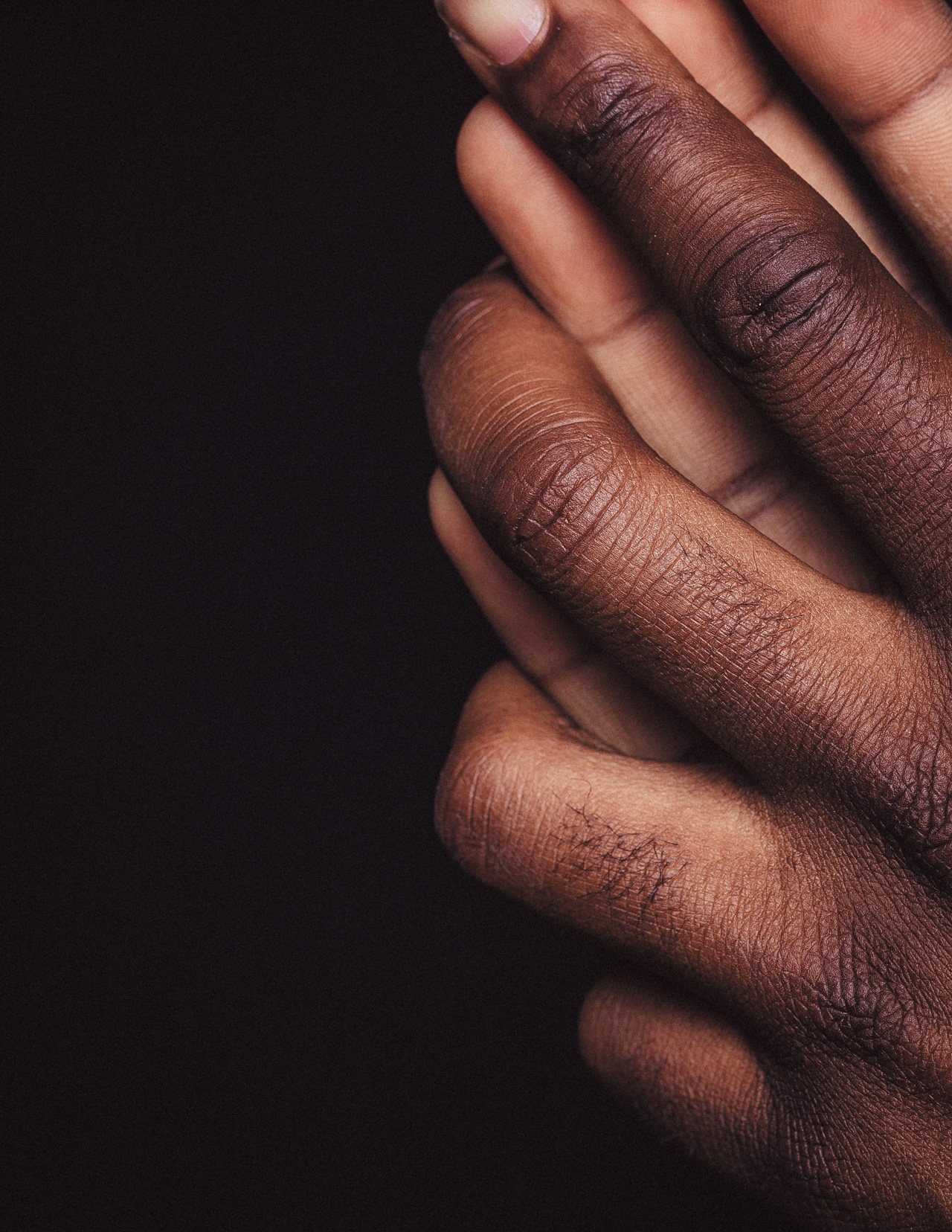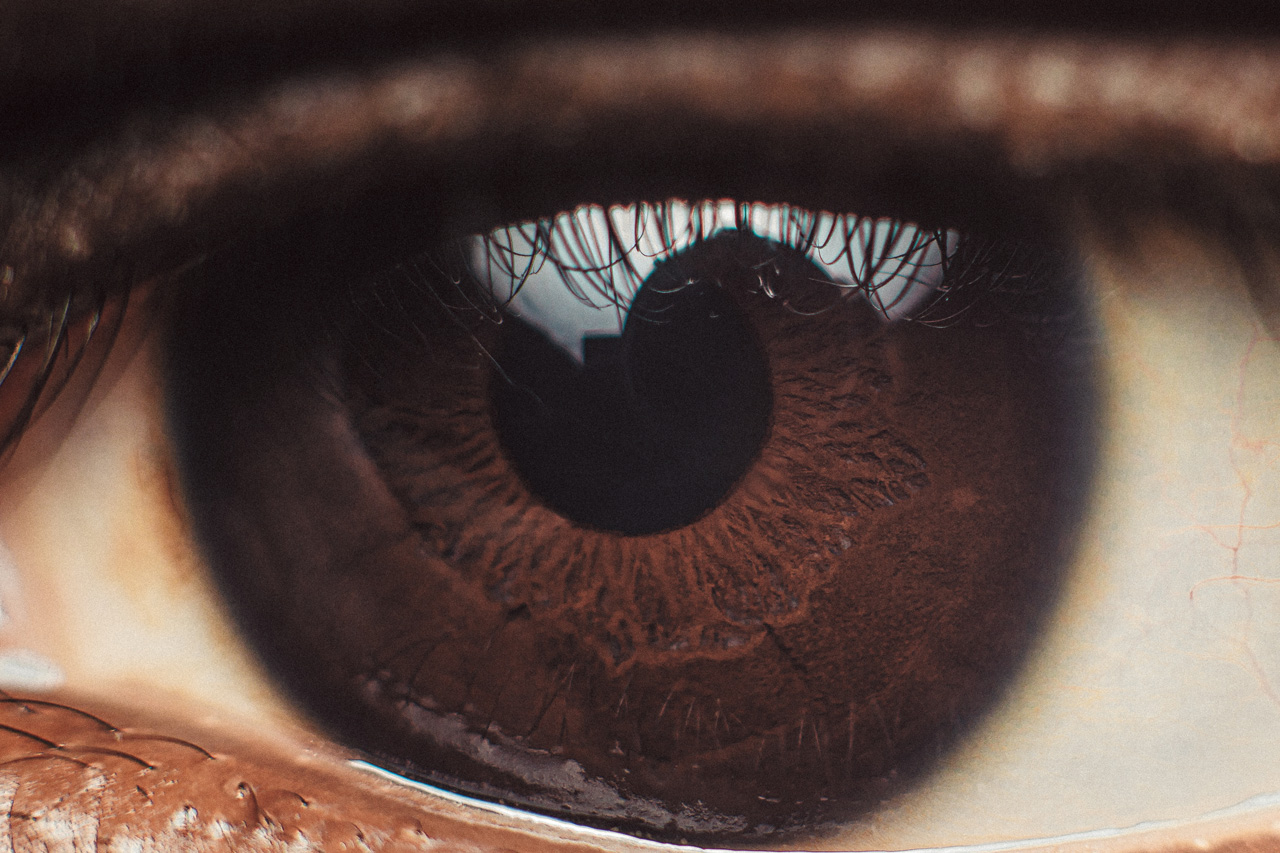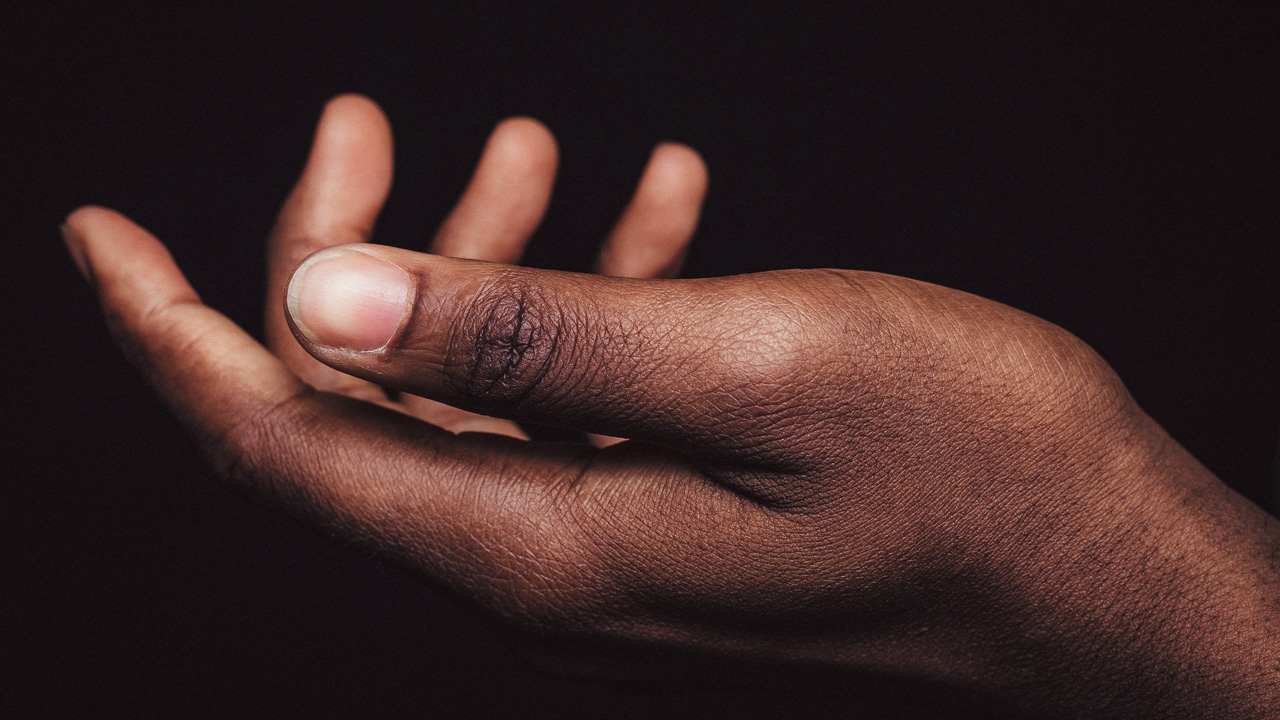News feed
The need for physical touch is not something we learn or develop, but rather something we are born with. It’s even right in the middle of Maslow’s Hierarchy of Needs, which tells us that intimacy and connection are necessary for a fulfilling life (only a notch above things like food, water and shelter).
But over the past 18 months, the pandemic has tightened its grip around almost every facet of modern life, including our ability to touch and be touched. It felt like a novelty at first – a tiny taste of what it feels like to live out a significant moment in history. But a year-and-a-half in, the forced isolation is truly taking a toll. Many of us have stopping kissing, hugging, holding hands and having sex, all in the name of public health. But health is multifaceted, and for some experts, the mental psychological impact that comes with lack of touch is something to be reckoned with.
Here, GRAZIA speaks to six experts – including columnists, sexologists, sex educators and intimacy coordinators – about touch, connection, physical isolation and what this might mean for us in years to come.
Keep reading for a series of honest conversations.

SUZI GODSON: AUTHOR, JOURNALIST, SEX AND RELATIONSHIPS COLUMNIST AT THE TIMES
My career path has been peculiar. I did an MA in Graphic Design at the Royal College of Art and spent years running my own design practice. Then, a group of girlfriends and I wrote a book called Women Unlimited, A DIY Guide to Life. It was published by Penguin and was vaguely successful, but all anyone ever wanted to talk about was the chapter on sex.
The book led to a column in The Independent on Sunday and eventually my column in The Times. The more I wrote about sex and relationships, the more interested I became. I began studying psychology to PhD level in my spare time. I was also driven by lived experience. At 22, I married a guy I had only known for seven weeks. The inevitable divorce was incredibly painful, and by the time I remarried I was determined not to make the same mistakes again.
I’ve written a lot about the absence of physical and emotional intimacy and how abnormal that is. Humans are social and sexual creatures, and we don’t do well when we’re alone. During lockdown there were so many lonely, isolated people who were craving human touch. I started recommending essential oils, hot water bottles and even furry rugs to readers and friends. People who were single, bereaved or living alone really struggled. Single women with children had to completely ice their sex lives until they could have a babysitter again. One man I spoke to made the decision to move in with a woman he’d only known for a few weeks because it was the only way to have sex through lockdown.
One of the long-term consequences of COVID is a kind of residual social anxiety. People in general have become much more risk-averse, and single people in particular have become more cautious about casual sex.
Weirdly, dating apps which were set up to facilitate casual sex have also ended up becoming a water cooler where people are happy to hang out and flirt and chat and swipe, but they’re not in a hurry to take it offline the way they were before the pandemic.
In my opinion, dating apps have always been problematic because they offer the illusion of infinite choice, but the same five hot girls and boys always get all the swipes. One of the upsides of COVID was that it took a lot of that pressure off. It gave people time to figure out what they want and what they don’t want in their lives and in their relationships. No one wants to waste any more time so expect profiles to be much more honest and people to be much more direct about what they are looking for.

JULIET ALLEN: SEXOLOGIST, TANTRA PRACTITIONER, HOST OF THE AUTHENTIC SEX PODCAST AND FOUNDER OF YINN BODY
Since a young age I’ve always loved talking about and educating myself on sex, so when it came time to expand on my study of psychology, I chose a masters of sexology for fun. I loved it and my career kicked off as a sexologist. I now blend the teachings of sexology and Tantra together, which is the perfect holistic mix.
Right now I feel we’re talking about sex, pleasure and intimacy more holistically, which is a positive change. Sex has always been taboo (and still is) and in my opinion, often approached in quite tacky ways. I’m enjoying seeing media outlets cover sex with a more sophisticated approach. It’s refreshing!
The pandemic has had such a profound effect on us, because we’re all experiencing it in such different ways. In general, for single people I feel it’s been quite challenging, and yet also a great opportunity to realise the importance of our relationship with ourselves. When we have fostered a strong relationship with self, it can make life a little easier, especially during tough times. Self-pleasure can definitely increase during this time, as well!
I also feel it’s been an interesting opportunity to date online and get to know potential partners first without jumping straight into sex. It’s a different approach and it seems to be fostering deeper emotional connections in some instances, which I feel is a positive. For those in relationships, it’s interesting. In my experience I’ve found that the forced isolation has either brought pre-existing challenges to the forefront, or it’s given partners an opportunity to spend more time together. But we’re all having different experiences and it’s hard to generalise. With that being said, I do feel the pandemic is going to have a knock-on effect. The lack of intimacy and physical touch people are experiencing is concerning, especially those who aren’t allowed to spend time with those they love. Physical intimacy and connection is vital for our health and wellbeing – without it, many experience physical and mental challenges. And while emotional and spiritual intimacy is powerful, I believe that the physical element is what many humans yearn for – it’s like the cherry on top of a deep emotional connection. I don’t believe it’s possible to foster a truly deep and sexually intimate connection without eventual physical touch.
At Yinn Body, we actually experienced a huge increase in Pleasure Wand sales when the pandemic first hit – it was incredible! I guess the whole world had plenty of time to spare, so self-pleasure became a priority. I do think the fact we’re exploring self-sex with more of an open mind is one positive to come out of this mess. It’s healthy, and the conversation surrounding it is something I’m passionate about.

CASEY HUDEKI: INTIMACY COORDINATOR, ACTOR, STUNT PERFORMER AND COO OF INTIMACY COORDINATORS CANADA
I was in my 20s when I had to perform my first nude scene. I was respected, but still had a lot of anxiety around the unknown elements. I didn’t know if we were going to be kissing, if we should use tongue, what modesty garments I would have and how to wear them (I definitely put them on wrong), and if what I was doing looked good. There was no one to ask, and while it wasn’t traumatic, I still felt residual shame. But that experience helped me have the empathy needed for this job.
I had just started working on television show Sex/Life when the pandemic shut the world down, and I thought, ‘well that’s the end of intimacy work’. But looking back, I do think the last 18 months have opened a lot of new consent conversations. People started thinking twice about their relationship to touch, and it was easier to explain the value of my work regarding a person’s right to have information and agency on set. It has been more complicated in terms of shooting larger scenes, plus has put financial strain on actors to take jobs that might involve things they wouldn’t consent to doing otherwise. So, I like to make sure we get all that out on the table and move forward in a way that they feel respected.
It’s difficult to say how this period of time will affect the industry and society going forward. I think people are definitely more aware of how they navigate, desire or fear touch in their daily lives, but I can’t predict how that will shape what we see on screen. Hopefully it will make us more mindful of our portrayal of physical intimacy – the need for it in our lives, the consequences of being without it or the complex ways it can affect us. Maybe we will become more aware of when our use of touch and sex is not story driven.
I also believe that, with the role of the intimacy coordinator, we have an opportunity to put more thought into the intimacy stories we tell, offering more authentic or affirming choreography. Showcasing underrepresented intimacy for example, and celebrating intimate stories with trans characters or characters with disabilities. The industry has been very limited in what it considers ‘sex’, and I would love to see us open that up and be more inclusive in our representation.
Sex on the screen might also become jarring and troubling for people. It’s one thing to watch physical touch, but a very different thing to experience it. Skin contact triggers all sorts of reactions in the body and watching it on TV is really no substitute to the real thing.

LUKA MATUTINOVIĆ: CMO AT LELO
The growth of the sex toy and self-pleasure industry began well before the pandemic. The last two decades have been marked by changing attitudes, lifting the stigma around sex and growing awareness about sexual wellness. This has led to the introduction of innovative pleasure-enhancing products, thus developing new opportunities, increasing visibility and propelling growth for brands like LELO in the global sexual wellness market.
Yet it’s impossible to deny that the pandemic played a significant role in the recent surge. With so many of us impacted, it doesn’t take much to establish a correlation between people isolating at home and a spike in sales. When we talk about the pandemic, it’s hard to find something positive in all of it. But some little comfort was to be found in the opportunity to reconnect with ourselves and our partners. As the pandemic liberated us sex-wise, it also wholly normalised the discourse on sexual pleasure, and hopefully there’s no turning back!
As a business however, it left us in a complicated moral position – one we didn’t take lightly. On the one hand, people were looking to us to inject a little pleasure and colour into their lives when they needed it most. But on the other, it felt a little uncomfortable to be doing well in such unsettling times. As such, we have taken measures to ensure we are remaining as fair and public-spirited as we can, from gifting tens of thousands of toys, to prioritising the health and safety of our teams.
When comparing the period from which the outbreak began in earnest, starting mid-February until today, with the same period the year prior, sales increased by approximately 148%, and this momentum continues even now. They’re encouraging statistics, as they imply that people are finding intimate ways to ease the stresses and pressures of our self-imposed quarantine.
It is touch and go, and even with all our expertise in the field, we are unable to predict the future with any level of certainty. The last two years both wreaked havoc and did wonders for our sex lives, partnered or not. It is true that some surveys suggest people had less sex during the lockdown. Still, our resources (customer care, our blog and sales) strongly suggest there was an increase in the self-love department. The pandemic has reminded us how vital intimacy, touch and sexual pleasure are to our quality of life, and because of that, we are sure things will eventually go back to pre-pandemic normal.
For some though, the unprecedented events of the last two years will make them more likely to throw all caution to the wind, go out, seek human touch and surrender to unbridled lust with little or no thought about the consequences as they leave their confinement behind. This is probably truer of younger generations.
But there is an equal number of those who will feel like they are stopped in their tracks, and things like going out, meeting new people, touching or hooking up with (via apps and in-person) will make them more cautious due to feelings of risk. The new world outside could be a scary place for some. And in our opinion, both seem to be the poles of a new norm.

LISA FINN: SEX EDUCATOR AND BRAND MANAGER AT BABELAND
I applied to work at Babeland on a whim when I saw the “help wanted” sign. I had experience as a peer sexual health educator at a queer youth crisis centre on Long Island in New York, which gave me a head-start on the required training. But as I was brought into how vast and important the world of pleasure-based sex education could be, I found myself wanting to learn more. I started teaching some of the free workshops (which are all virtual now so folks can safely tune in from anywhere) and this led me to my current position as Brand Manager and Sex Educator.
Babeland is all about empowerment, accessibility and inclusivity. It started as a way to provide a space for people, specifically women and queer folks, to feel safe and comfortable as they shopped for their sex toys. We believe that everyone has the right to pleasure, and to feel valid and shame-free in their sexuality and sexual expression.
As soon as people started realising that things were going to be shutting down for a bit due to the COVID-19 outbreak, our brick and mortar shops saw an obvious uptick in customers looking for lubricant and safer sex supplies like condoms, presumably prepping for lockdown with partners. Lots of first-timers would come in to grab a toy, citing that if they were going to be stuck in their rooms for the next while, they might as well give something new a shot. Our web sales followed shortly after, with a huge spike of sales in toys geared for solo play, like vibrators and strokers. App-controlled vibrators were a huge hit, considering you could use them with a partner no matter how far away you are from one another.
But once job security became an issue for so many, we began to see a dip. It was also hard at times to keep up with demand due to shipping issues – both domestic and international – which were out of our control. Increases in sales came back alongside stimulus checks, and when we started to see things open back up. It’s been a really interesting time.
I think the pandemic has allowed a lot of people to redefine what sex means to them. Acts like sexting, phone sex, mutual masturbation, long distance play and others that may not involve direct physical touch have been in the spotlight and thus normalised by their popularity. I believe – and I hope – that this may have opened a lot of eyes and given insight into how we can reframe sexual pleasure as not having to rely on solely physical acts.
In terms of how I think this will affect us going into the future, I believe this really is on a person-to-person basis. Some folks are comfortable to come back in and shop, while others aren’t, and that’s understandable. A lesson I’m really hoping we take from the pandemic is the way we navigate informed consent. Questions about exposure and testing to become risk-aware were normalised in the context of COVID-19, and I’m hoping to see that same lack of shame and openness used when asking new partners about exposure and testing as it relates to STIs. This is, of course, not to compare the two as per severity – folks with a positive STI status can have healthy sex lives just as much as those without (but that’s a whole other conversation).
Editor’s note: Interviews have been edited and condensed for clarity.
THIS ARTICLE IS FEATURED IN THE TENTH EDITION OF GRAZIA INTERNATIONAL. ORDER YOUR COPY HERE.









